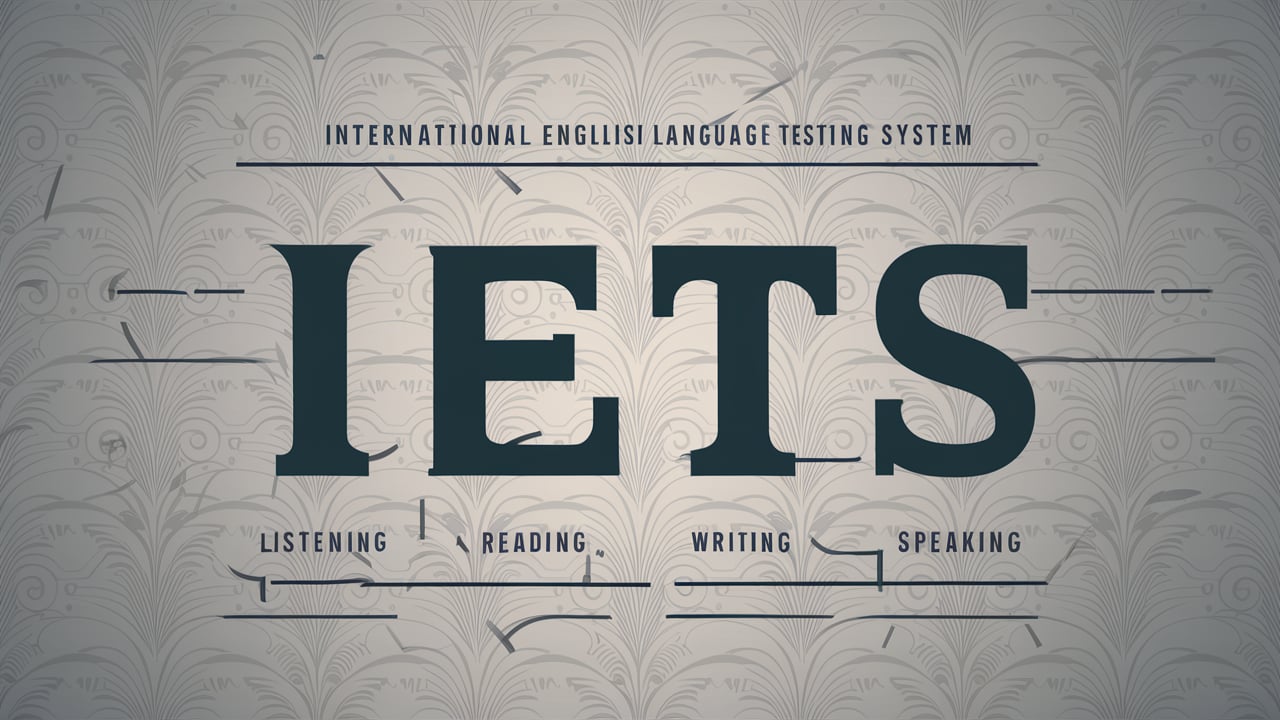IELTS language certificate
What is the IELTS language certificate?
The International English Language Testing System (IELTS) is a standardized test designed to assess the English language proficiency of non-native English speakers. Jointly managed by the British Council, IDP: IELTS Australia, and Cambridge Assessment English, IELTS is widely recognized and accepted by educational institutions, employers, immigration authorities, and professional bodies worldwide.
The IELTS test is divided into four sections: Listening, Reading, Writing, and Speaking. Here’s a brief overview of each section:
- Listening (30 minutes): Consists of four recorded monologues and conversations. Test-takers must answer questions to demonstrate their ability to understand main ideas, details, opinions, and attitudes.
- Reading (60 minutes): Includes three reading passages with a variety of question types, such as multiple-choice, true/false/not given, and matching headings. The passages can come from books, magazines, newspapers, and online resources.
- Writing (60 minutes): Involves two tasks. Task 1 requires candidates to describe visual information like graphs, charts, or diagrams. Task 2 asks for an essay response to a point of view, argument, or problem.
- Speaking (11-14 minutes): Comprise a face-to-face interview with an examiner. It includes three parts: an introduction and interview, a short speech about a given topic, and a discussion.
IELTS offers two test formats
- IELTS Academic: Suitable for those applying for higher education or professional registration. It assesses whether you are ready to begin studying or training where English is the language used.
- IELTS General Training: Focuses on basic survival skills in a broad social and workplace context. It is often required for immigration purposes or vocational training programs.
The test is scored on a nine-band scale, with each band corresponding to a specific competency level in English, from non-user (Band 1) to expert (Band 9).
IELTS scores are valid for two years, and the test is available in numerous locations worldwide, offered multiple times a year. High IELTS scores can open up opportunities for education, work, and residency in English-speaking countries.

Types of IELTS certificates
IELTS (International English Language Testing System) offers two main types of certificates based on the test formats: Academic and General Training.
IELTS Academic:
- Purpose: This format is intended for those applying for higher education or professional registration in an English-speaking environment. It assesses whether you are ready to begin studying or training in an English-speaking setting.
- Content: The listening and speaking sections are the same as in General Training, but the reading and writing sections are more focused on academic language and contexts (e.g., extracts from books, journals, and newspapers).
IELTS General Training:
- Purpose: This format is for those who are going to English-speaking countries for secondary education, work experience, or training programs. It is also needed for migration to Australia, Canada, New Zealand, and the UK.
- Content: The listening and speaking sections are the same as in the Academic version, but the reading and writing sections reflect everyday life and workplace settings (e.g., notices, advertisements, company handbooks).
IELTS for UK Visas and Immigration (UKVI):
- Purpose: If you’re applying for a UK visa, you may need to take the IELTS test approved for UK Visas and Immigration (UKVI) purposes. It involves the same formats (Academic and General Training) but is conducted under additional security requirements specified by UKVI.
IELTS Life Skills:
- Purpose: This test is for those needing to prove their English speaking and listening skills at Common European Framework of Reference for Languages (CEFR) levels A1 or B1. It is often required for certain types of UK visas, such as family of a settled person visas or indefinite leave to remain.
- Content: Unlike the other versions, this test focuses solely on speaking and listening.
Each certificate is equally valid, but the type you need depends on your specific goals, whether they are academic, professional, or for immigration purposes. Make sure to choose the format that aligns with your needs.
How much is the cost of different types of IELTS tests?
The cost of taking the IELTS (International English Language Testing System) can vary based on the country and the specific type of test. The main types of IELTS tests are:
- IELTS Academic: For those applying for higher education or professional registration.
- IELTS General Training: For those migrating to an English-speaking country or applying for secondary education, training programs, or work experience.
- IELTS for UK Visas and Immigration (UKVI): Specific to the requirements set by UK Visas and Immigration.
- IELTS Life Skills: For those needing to prove their English speaking and listening skills at Common European Framework of Reference for Languages (CEFR) levels A1, A2, or B1.
elementor-template id=”2522″]
Here are approximate costs in a few regions:
United States:
- IELTS Academic or General Training: $245–255
- IELTS for UKVI: $310–325
- IELTS Life Skills: $150–200
United Kingdom:
- IELTS Academic or General Training: £185–195
- IELTS for UKVI: £195–205
- IELTS Life Skills: £150–160
Australia:
- IELTS Academic or General Training: AUD 375–400
- IELTS for UKVI: AUD 395–425
- IELTS Life Skills: AUD 275–300
India:
- IELTS Academic or General Training: INR 14,000–15,000
- IELTS for UKVI: INR 15,000–16,000
- IELTS Life Skills: INR 13,000–14,500
Canada:
- IELTS Academic or General Training: CAD 310–320
- IELTS for UKVI: CAD 340–350
- IELTS Life Skills: CAD 235–250
Keep in mind these figures are approximate and can change. It’s best to visit the official IELTS website or contact a local test center for the most accurate and up-to-date information.
Does the IELTS exam have an age limit?
No, the IELTS exam does not have a strict age limit. It is open to test-takers of all ages. However, it’s generally recommended for individuals who are 16 years of age or older. This is because the exam content and level of difficulty are typically aligned with the skills expected from individuals at this age or older.
For younger test-takers, it’s important to consider whether they have the necessary language proficiency and cognitive ability to handle the exam materials. If a younger learner needs to take the exam for certain purposes, such as applying to a school or moving to an English-speaking country, they can certainly do so.
Keep in mind that it’s always a good idea to check specific requirements of the institution or organization for which you’re taking the exam, as they may have their own age-related criteria or recommendations.

10 Questions and Answers about the IELTS exam
What is the IELTS exam?
- The International English Language Testing System (IELTS) is a standardized test that measures English language proficiency for non-native English speakers.
What are the different types of IELTS exams?
- There are two types: IELTS Academic, for those applying for higher education or professional registration, and IELTS General Training, for those migrating to English-speaking countries for secondary education, work experience, or training programs.
How is the IELTS exam structured?
- The IELTS exam has four sections: Listening, Reading, Writing, and Speaking. The Listening and Speaking components are the same for both versions, while the Reading and Writing components differ.
How long does the IELTS exam take?
- The total test time is approximately 2 hours and 45 minutes. Listening lasts 30 minutes, Reading 60 minutes, Writing 60 minutes, and Speaking 11-14 minutes.
How is the IELTS scored?
- IELTS is scored on a 9-band scale, with each section receiving a score from 1 to 9. The overall band score is the average of the individual scores.
How often can I take the IELTS exam?
- There is no limit to how many times you can take the IELTS exam. You can retake it as many times as you wish, but note that each attempt requires payment of the exam fee.
How long are IELTS scores valid?
- IELTS scores are generally valid for two years from the date of the test.
Can I choose the order of the IELTS sections?
- No, you cannot choose the order. The Listening, Reading, and Writing sections are taken in one sitting, in that order. The Speaking test may be on the same day or up to a week before or after the other sections.
Can I bring any materials into the exam room?
- No, personal items are generally not allowed in the exam room. You will usually be required to bring only your ID and the confirmation letter. Test centers will provide other necessary materials like pencils and erasers.
What is the cost of the IELTS exam?
- The cost varies by country and test center. It typically ranges from $215 to $240 USD, but it’s best to check with your local test center for the exact fee.

At this time I am going away to do my breakfast, after having my breakfast coing yet again to read further news.
At this time I am going away too do my breakfast, after having
my breakfast coming yet again to read further news.